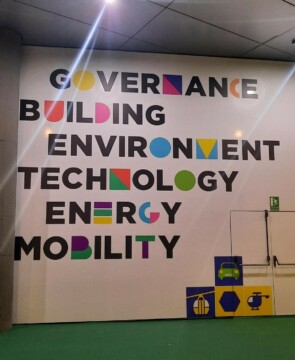Space solutions and Smart Cities unite at the Smart Cities Expo World Congress
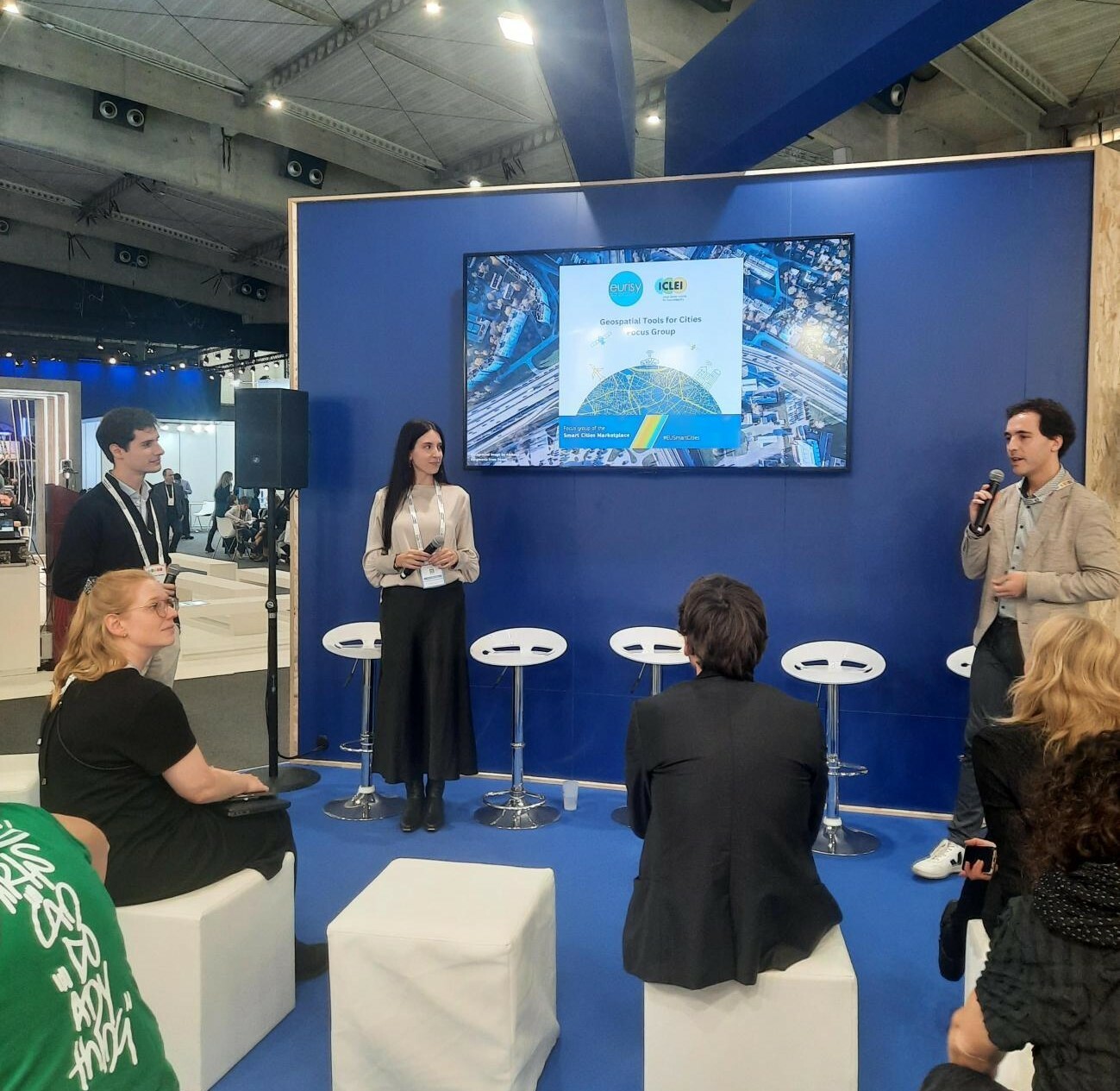
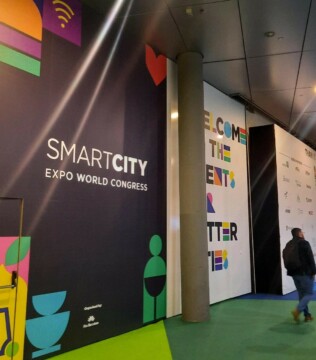 Over 25,000 attendees from around the globe gathered for three days dedicated to ethical urban development. Under the theme “Live Better”, the event brought together representatives from 850 cities to showcase and share their latest projects and initiatives. More than 1,000 companies exhibited their innovations, ranging from autonomous shuttles to smart waste bins and flying taxis.
Over 25,000 attendees from around the globe gathered for three days dedicated to ethical urban development. Under the theme “Live Better”, the event brought together representatives from 850 cities to showcase and share their latest projects and initiatives. More than 1,000 companies exhibited their innovations, ranging from autonomous shuttles to smart waste bins and flying taxis.
Resilience was a key topic, especially with the severe floodings in Valencia occurring a few days before the event. The devastating rainfall underscored the urgent need for cities to prepare for and respond to climate change, ensuring the safety and well-being of their citizens.
Eurisy has long focused on the role of space solutions for smart cities. The recent kick-off of the UDENE project highlights this commitment, and the forthcoming Geospatial Tools for Cities Focus Group, part of the European Commission’s Smart Cities Marketplace, promises to be another significant initiative in this area.
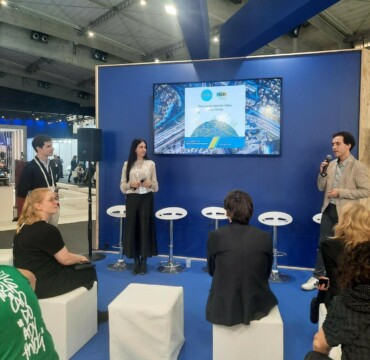
From left to right: Bernat Gené Škrabec (Spascat) Gabriella Quattropanetti (Eurisy) Xavier Casanova Colomé (ICLEI).
The new Focus Group was presented for the first time at the Smart City Expo by Eurisy and ICLEI, to the vibrant and diverse audience.
The dedicated session explored the many applications of space solutions in smart cities, from air pollution monitoring, and traffic management to fostering smart urban development.
It highlighted planned activities and discussion topics for the focus group, focusing on climate resilience, disaster risk management, and pre-commercial procurement of innovative solutions, identified as key topics for smart city stakeholders.
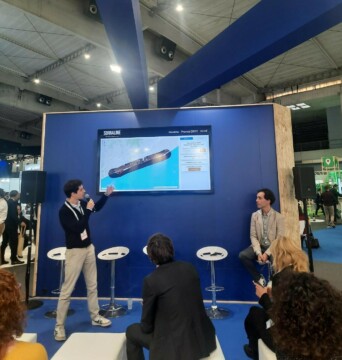
From left to right: Bernat Gené Škrabec (Spascat), Xavier Casanova Colomé (ICLEI).
Bernat Gené Škrabec from the Catalan company Spascat presented a local perspective on coastal monitoring, demonstrating how municipalities can easily use space solutions to facilitate urban planning.
The event was also a great platform to engage with the growing community of space representatives present at the expo, including some of Eurisy members from the Netherlands Space Office, the Institute of Space Studies of Catalonia (IEEC), and the European Space Agency (ESA).
Throughout the three-day event, sessions on space solutions could be also spotted at the event, reaffirming the growing and ever more recognised connections between space and cities.
The Choose France booth hosted a panel on how space solutions can tackle climate challenges, moderated by Aerospace Valley, as part of the Copernicus Connection project to which Eurisy is a partner. At the Catalan booth, ESA Business Applications and Space Solutions (BASS) presented the Task Force on Smart and Green Cities, serving as valuable inspiration for our upcoming Focus Group.
Additionally, representatives from the Japanese Space Agency (JAXA) held a session on the role of Earth Observation (EO) for Smart Cities, showcasing national projects and initiatives.
It was a fascinating congress that encouraged the exchange of ideas and highlighted the need for a greater presence of space representatives at such events. Proposals for the next edition were made, with the aim of expanding the space community at the Smart City Expo in the coming years. 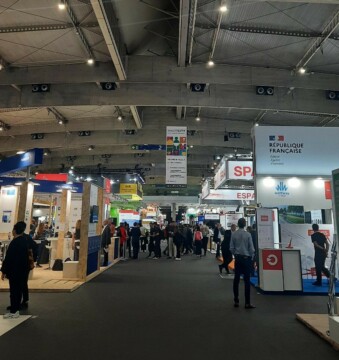
On the last day of the expo, the Chinese Smart City of Shenzhen was awarded as the Smart City of 2024.
A remarkable example of transforming the city through digitalization, advanced urban management, and sustainable development to tackle challenges like dense population, resource limitations, and environmental concerns.
Which were the key factors that contributed to Shenzhen’s win?
- Technological Innovation: The city has invested heavily in cutting-edge technologies like high-speed broadband networks, digital twin technology, and AI-driven governance.
- Government Support: Strong policy frameworks and infrastructure investments have supported smart city initiatives.
- Citizen Participation: Platforms like the “Community Home Network” and “Palm App” which enable residents to access information, provide feedback, and participate in community management.
- Inclusive Development: Shenzhen has tailored smart solutions to meet the diverse needs of its population, including intelligent security systems and senior care services.
It is fascinating to note that, even if not explicitly highlighted, space solutions are woven into the fabric of all these initiatives, driving innovation and enhancing urban life in countless ways.
We are eagerly looking forward to next year’s edition of the Smart City World Expo and hope to see more of the space community! 